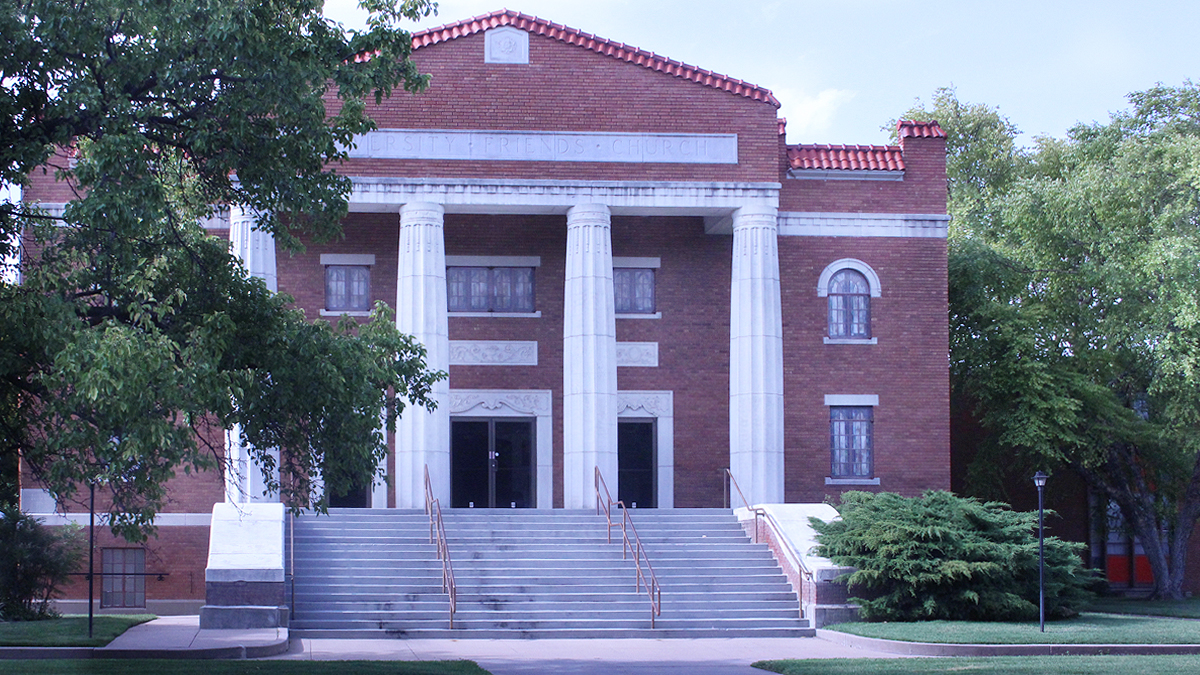Bitter laughter isn’t my usual response when I look into my new issue of Friends Journal, but a few years ago I opened right to an article accusing Friends of being soft on divorce ("On Marriage and Divorce—With a Proposition Bound to be Controversial," by Anne E. Barschall, FJ June 2004). "Surely I must be the only Quaker who is reading this right after leaving a 40-year marriage," I said out loud. Here I was, a novice at living alone, and already talking to myself.
Fortunately, my mind’s ear still heard Phyllis’s response from the previous Sunday, when I had sprung the news on local Friends. "Your meeting has your back." She and her husband offered to help me move or to hang around in case I felt unsafe. (I didn’t.) They served me a delicious supper. They heard my tale of woe.
I won’t summarize it here, except to say that I wasn’t in grave physical danger. I don’t want to tempt any reader to judge on the evidence whether or not I did the right thing. Without knowing the particulars, Phyllis had assumed I did. She didn’t know the details, but she knew me.
In contrast, the Pittsburgh Friends who oversaw our wedding decades ago were taking a chance on us, a couple of new attenders, one with an Army commitment in wartime. Sometime later, wondering at our youthful folly, I was comforted to remember that a whole committee of discerning Friends had worked at getting to know us and none of them had warned us to turn back.
Years later I met one of them who admitted to relief that at least one marriage they had fostered in the 1960s was still intact. Did other failed relationships point to a history of faulty discernment? I don’t think so.
Modern Quakers lean toward hope. If the mainline Protestants of my youth were right and humanity is innately sinful, Friends don’t dwell on it. They try to clean up the results. Whatever any of us means by that well-worn quotation about "that of God in everyone," it is an optimistic idea. We tend to give actions that are not unarguably horrible the benefit of that belief.
Maybe that’s soft, or maybe it’s taking the Jesus of Matthew 12:31 seriously when he calls blasphemy of the Holy Spirit the unforgivable sin. Chronic skepticism about other people’s motives and actions implies that genuine leadings are rare and that the human heart is generally too tough a nut even for the Holy Spirit to crack.
A few years after our wedding, I got a surprise long distance call from another of those committee members. She asked how we were, and I said we were just fine. Even though almost from the start I sensed that my husband regretted having me along on his life’s adventure, I hoped to change that by trying harder.
"You started out under my eye, and I still think of you," the caller said. I was new in Texas, lonely, feeling like a failure, and I took great comfort in the thought of being under Florence Shute’s eye then and whenever I remembered her words.
Comfort came again when Friends Journal later published an article by a woman who combined the experience of a long, happy marriage with keen empathy for others whose married lives were sad ("Another Reflection on Marriage among Friends," by Georgana Foster, FJ Jan. 2006, p. 10). My sense of being known and supported by a stranger made a hard time easier.
For a long time, I had not been believed in or believed. Right after walking away from that, I don’t know how I might have reacted if I had encountered similar doubts about me in my meeting. I might have fallen back into my habit of taking criticism to heart without examining it. Or I might have laughed it off, as I did that first article. In neither case would the reaction of my religious community have done me any good.
Was the meeting that allowed my wedding wrong because of how my marriage developed later? No. Like me, they were simply doing the best with the light available to them at the time.
Goodness has been more important to me than rightness, and Friends have been good to me. They have kept me under their eye. They have had my back.


